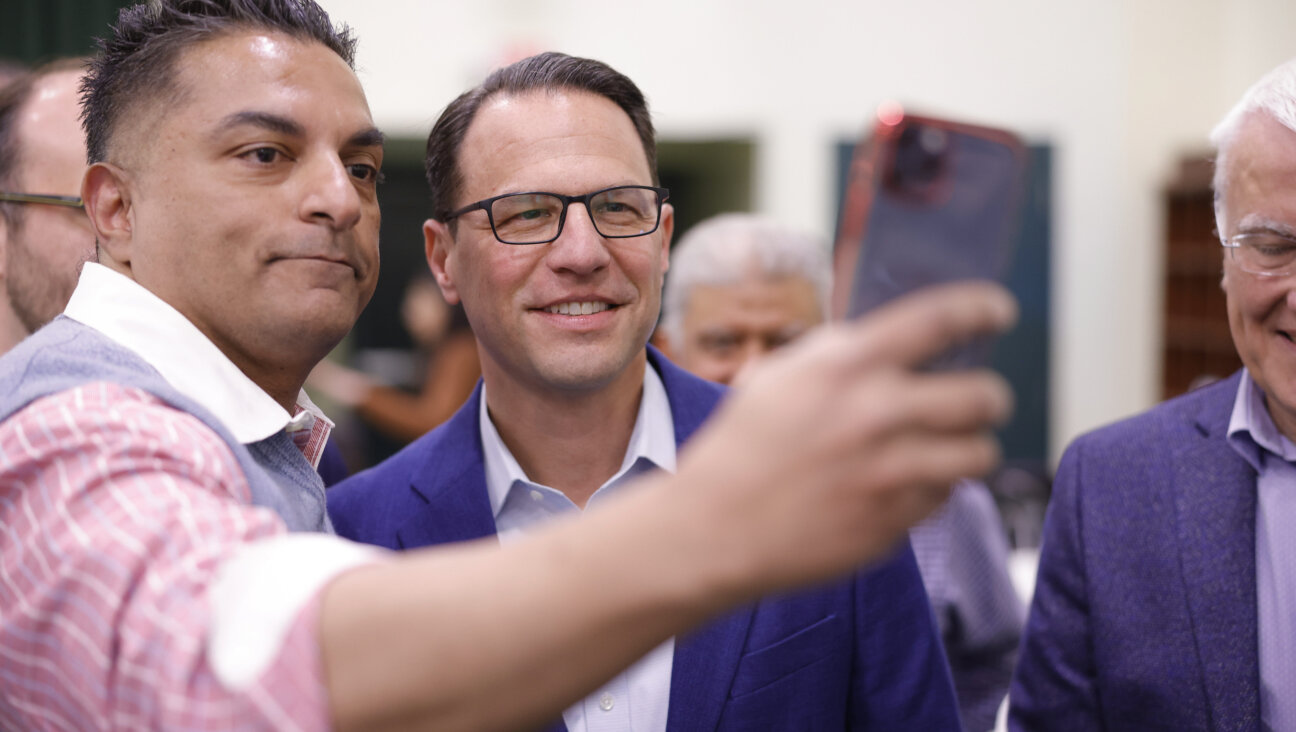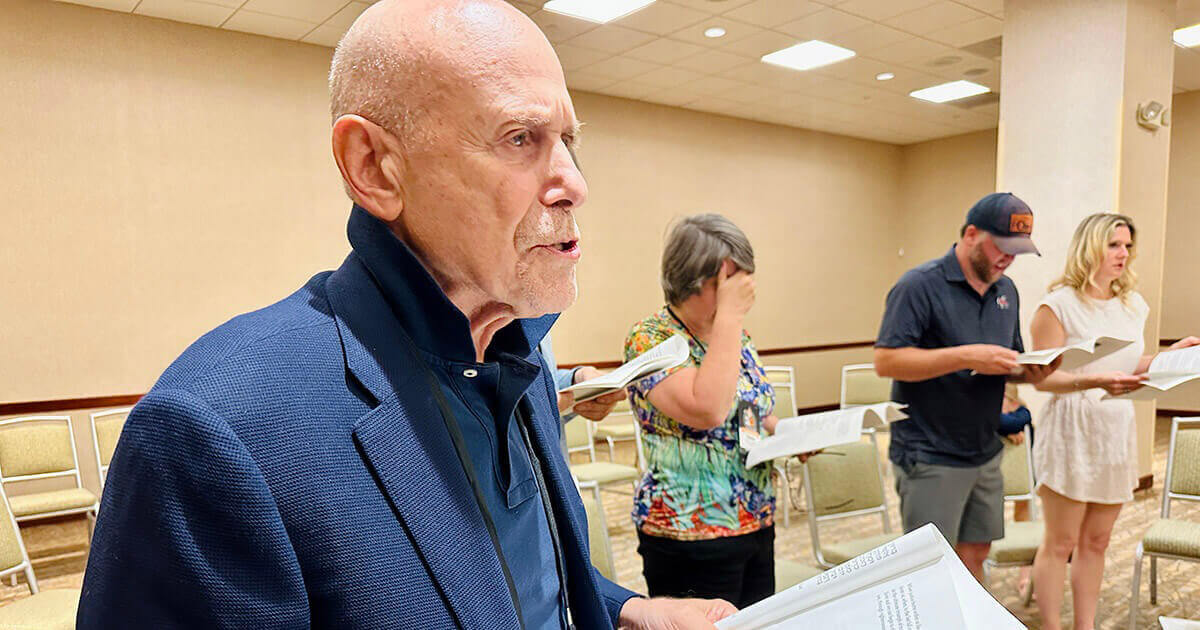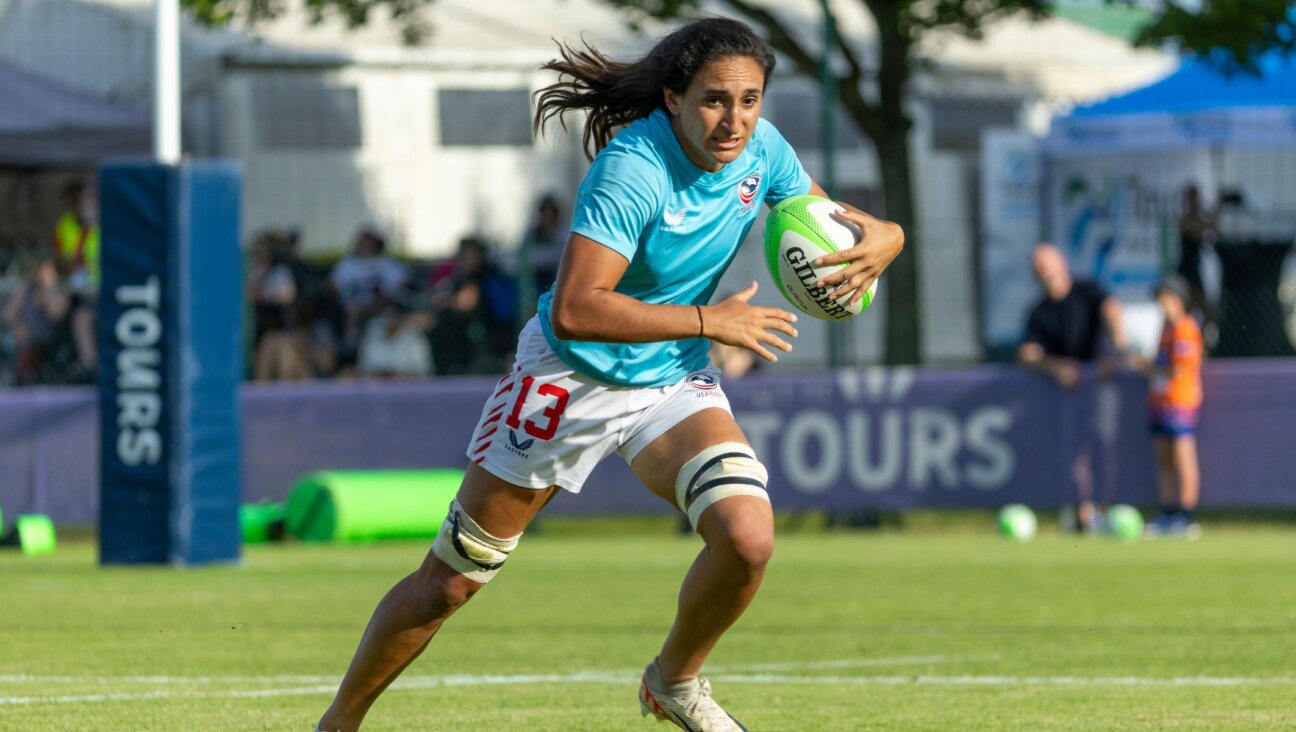At Men’s Only Seders, Challenges of Modern Jewish Man Are the Focus

Image by Thinkstock
Steve Walk participated in his first men’s seder last year as a member of Temple Beth-El in Great Neck, N.Y. There was no exodus story, no matzo and no bitter herb. Instead, a moderator walked around with a freedom plate, encouraging participants to put down things they felt burdened them. Walk said someone put down a health insurance card and discussed suffering a heart attack. Another put down his business card from a Wall Street firm that had fired him.
“Guys really opened up,” Walk said. “They let go of things that they may never have talked about with anyone.”
The men’s seder, a program put on by local chapters of the national organization Men of Reform Judaism, is a riff on the traditional Passover seder. Instead of four cups of wine and a retelling of the Exodus story, the men’s seder is a casual gathering that uses a modified Haggadah that encourages participants to discuss issues that affect the modern Jewish man. It’s quickly become MRJ’s most popular program.
Men’s seder founder Rabbi Dan Moskovitz of Temple Judea in Los Angeles says the program is an effort to address challenges that modern Jewish men face as they attempt to balance work and family, and to reverse what MRJ Executive Director Doug Barden calls “the male flight from temple life.”
The idea for the men’s seder was conceived by Moskovitz in 2005. He was leading a weekly discussion of men’s issues in his home. The positive reception spurred him to expand it to a Passover seder that he led with a group of 20 men.
“Our seder re-examined the Passover story as a journey through the challenges and blessings of the modern Jewish man,” Moskovitz said.
The success of the first men’s seder led Moskovitz to hold a Los Angeles community men’s seder at the University of Judaism in Los Angeles. Moskovitz co-hosted it with local Conservative Rabbi Perry Netter of Temple Beth Am, Cantor Mike Stein from Temple Aliyah and entertainer Craig Taubman. This time, 120 people showed up.
This wasn’t your grandfather’s seder. There were drum circles, discussions on impotence and breadwinning, and comedy bits about Jewish men. Moskovitz says participants loved it.
“We drummed, we laughed and we learned,” Moskovitz said. “It was a tremendous success.”
The community seder attracted Barden’s attention. He asked Moskovitz and Netter if they would write a Haggadah that Reform brotherhoods across the country could use. Barden said the decision paid off: “It’s so rare these days that men can come together in a non-competitive setting to discuss issues like health and competency.”
The men’s seder is usually held a week or two before the Passover holiday. In 2008, the first year of the program, 18 chapters across the country participated, though Barden thinks that number has increased through positive word of mouth.
The special Haggadah includes questions meant to generate discussion such as, “What enslaves us as men?” and “Why is it important for us to be breadwinners?” It also rewrites the Ten Plagues as issues that plague men such as prostate cancer, mid-life crises and weight gain. The men write down answers to the questions posed by a moderator, read each other’s cards and begin a dialogue. Attendees can choose anonymity throughout the program, to ensure they feel comfortable sharing.
Barden said that most of the participants in the men’s seders are middle-aged and many are fathers, but he hopes the program will expand to include a younger demographic.
Moskovitz said Jewish men are much more involved with family life than they used to be, but don’t usually get the chance to talk about how to manage this new role.
“The men’s seder poses twenty-first-century questions for twenty-first-century men,” Moskovitz said. “Many of them are working the daddy shift in addition to the late shift.”
Reform temples are also dealing with dwindling male numbers. Stuart Aaronson of Temple Beth-El in Providence, R.I., said he thinks the men’s seder can help in the fight to retain and re-engage male members.
“We see fewer and fewer men participating in mainstream organized religion,” Aaronson said. “I think this seder is a chance for men to become religiously involved and explore deep personal issues.”
There is one similarity the men’s seder shares with the traditional seder, said Charlie Niederman, a member of Temple Beth David in Orange County, Calif.
“We’re a dessert-only seder,” Niederman said, and the treats are served after the talking. “So near the end someone always says, ‘So, when do we eat?’”
A message from our editor-in-chief Jodi Rudoren

We're building on 127 years of independent journalism to help you develop deeper connections to what it means to be Jewish today.
With so much at stake for the Jewish people right now — war, rising antisemitism, a high-stakes U.S. presidential election — American Jews depend on the Forward's perspective, integrity and courage.
— Jodi Rudoren, Editor-in-Chief






















